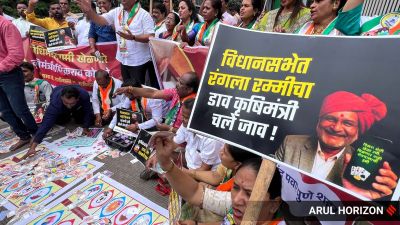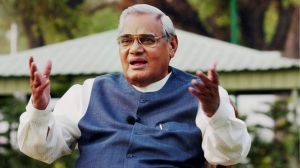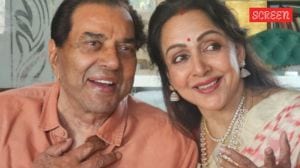‘I have been accused of murder’: Sam Altman responds as Tucker Carlson grills him over Indian-origin OpenAI whistleblower Suchir Balaji’s death
Suchir Balaji, an Indian-origin AI researcher based in the US, was found dead in his San Francisco apartment in November 2024.
 Altman leaned on police findings, calling it a suicide
Altman leaned on police findings, calling it a suicideIn a tense exchange, OpenAI CEO Sam Altman was pressed by US conservative commentator Tucker Carlson over the death of Suchir Balaji, a former OpenAI researcher whom Carlson repeatedly referred to as a whistleblower. Carlson claimed Balaji’s death was “definitely murder,” while Altman leaned on police findings, calling it a suicide. He also said, “I haven’t done too many interviews where I’ve been accused of murder.”
The conversation began with Carlson saying, “You had complaints from one programmer who said you guys were basically stealing people’s stuff and not paying them, and then he wound up murdered. What happened?”
Watch the video:
🚨NEW: Sam Altman is confronted by Tucker Carlson about the death of the OpenAI whistleblower, Suchir Balaji (WILD) 😲
Sam Altman suggests that Tucker Carlson is accusing him of murder.
“I haven’t done too many interviews where I have been accused of murder.” pic.twitter.com/uuup9xP63x
— Autism Capital 🧩 (@AutismCapital) September 10, 2025
Altman, visibly uncomfortable, replied, “Also a great tragedy. He committed suicide.” He added that Balaji had worked at OpenAI for a long time and wasn’t just another employee: “I was really shaken by this tragedy. I spent a lot of time trying to, you know, read everything I could … It looks like a suicide to me.”
But Carlson pushed back. “Why does it look like a suicide?” he asked. Altman responded, “It was a gun he had purchased.”
Carlson then cited details that contradicted the suicide ruling — cut surveillance wires, signs of a struggle, blood in more than one room, and Balaji having just ordered food after returning from a trip with friends. “He was definitely murdered, I think,” Carlson declared, adding that Balaji’s mother believes “her son was murdered on Altman’s orders.” Altman shot back, “Do you believe that?”
Carlson said he wasn’t sure but felt the case should be investigated. “If a guy comes out and accuses your company of committing crimes … and then he is found killed and there are signs of struggle, I don’t think it’s worth dismissing it,” he said.
Altman stressed that Carlson’s framing sounded like a direct accusation. “You understand how this sounds like an accusation?” he asked, noting how unusual it was to be questioned this way.
Carlson also questioned how authorities could “just kind of dismiss that as a suicide” when there were allegedly “signs of a struggle and blood in two rooms.” Altman admitted that he, too, was suspicious initially, but ultimately concluded it was a suicide.
As the discussion wore on, Altman said he wanted to “go to the depth of the matter” but also insisted Balaji’s memory and family deserved respect that he felt was missing from Carlson’s tone. Carlson, however, doubled down, saying, “Kid was clearly killed by somebody, that was my conclusion, objectively without any skin in the game.”
Who was Suchir Balaji?
Suchir Balaji, an Indian-origin AI researcher based in the US, was discovered dead in his San Francisco apartment in November 2024, only weeks after he publicly accused OpenAI of “unlawfully” training its models on copyrighted books, articles and other online content.
Authorities said Balaji died from a single self-inflicted gunshot wound. According to the San Francisco Police Department and the city’s medical examiner, his apartment was locked from the inside and there were no signs of forced entry. Toxicology tests showed alcohol and amphetamines in his system at the time.
But Balaji’s death has since become a flashpoint for controversy. His parents rejected the official conclusion, calling it a “cold-blooded murder.” They pointed to an independent autopsy that, they said, found evidence of a second gunshot wound and indications of a struggle. The family is pressing for a more transparent investigation, going so far as to urge the FBI to get involved, a demand now echoed by several public figures.
- 01
- 02
- 03
- 04
- 05































